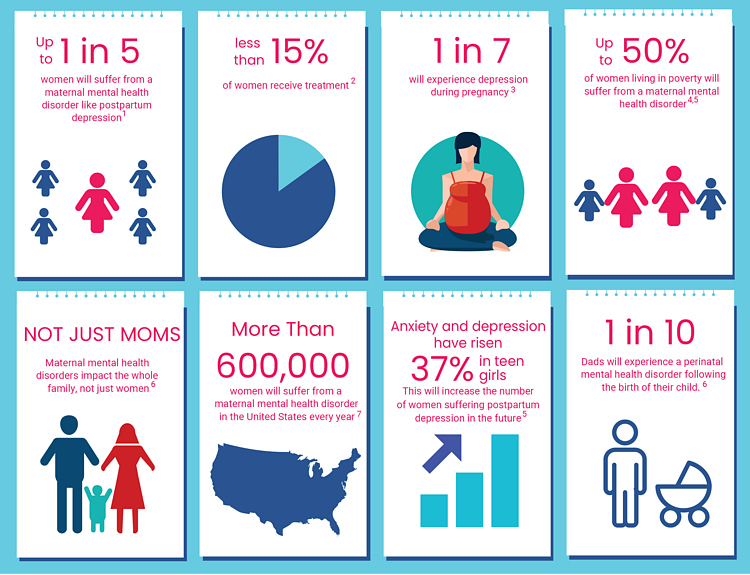Perinatal Mental Health Program
what is perinatal mental health?
Perinatal refers to the time around birth, and is typically defined as from the time of pregnancy to one year post birth.
Perinatal mental health issues can take many different forms, including feeling sad, hopeless, worried, irritable, feeling “not good”, doubting you should/can be a parent, not feeling bonded with your baby, and many other symptoms. Most commonly, the symptoms appear in pregnancy and up to one year after birth.
Our goal is to partner with various community resources to provide applicable services for pregnant and parenting women who are interested in exploring sobriety or a harm-reduction approach to substance use. Our staff is trained in trauma-informed care and provides meaningful, evidenced-based therapeutic care.
If you’d like to make referrals to our program, we would greatly appreciate it! We are available to come into your workplace to give a presentation about the program and/or bring in materials anytime.
perinatal mental health can effect any person who is:
- Trying to get pregnant
- Pregnant
- Parenting
- Partner of birthing person
- Adoptive Parents
- Foster Parents
- Does not currently have custody of their children
- Anyone who is raising a child
Diagnosis Can Include:
- Depression
- Anxiety
- Post Traumatic Stress Disorder
- Bipolar Mood Disorders
- Postpartum Psychosis
Perinatal Statistics
1 in 5 women will experience symptoms of a perinatal mental health disorder.
1 in 10 partners will experience symptoms of a perinatal mental health disorder
Less than 15% of women diagnosed with a maternal mental health disorder receive treatment.
Maternal mental health disorders are much more than the baby blues and consist of a range of mental health conditions such as depression, anxiety, OCD and PTSD.
Up to fifteen percent (15%) of women will develop anxiety during pregnancy or after childbirth.
70-100% of women (and their partners) have “intrusive” thoughts surrounding childbirth/the postpartum period.
Why?
While many parents experience some mild mood changes during or after the birth of a child, 15 to 20% of women experience more significant symptoms of depression or anxiety. Please know that with informed care you can prevent a worsening of these symptoms and can fully recover.
Who Can Access Services
Pregnant and parenting people of any age. Quest offers a particular emphasis on services to PMH clients who experience challenges related to substance use.
Services
Individual Therapy, Psychiatric Services, Targeted Case Management, Psychosocial Rehabilitation (PSR), Behavioral Skills Training (BST), Peer Support Services, Parenting education through Home Visitor, Group Therapy/ Support Group
Program Coordinator Information
Jillian Anderson, Licensed Alcohol and Drug Counselor, Marriage and Family Therapist, Perinatal Mental Health Certified, EMDR Trained, Play Therapy Trained
For more information about the effects of Alcohol and Marijuana Use During Pregnancy visit our YouTube page





